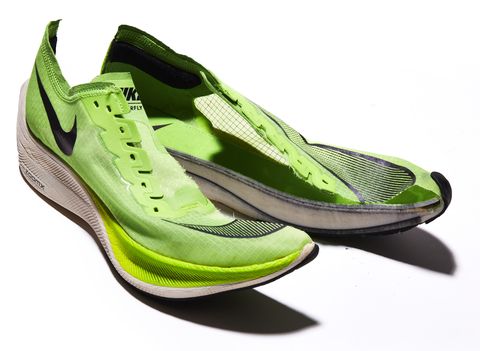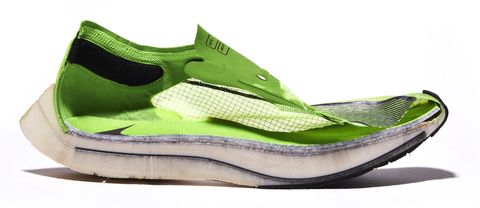Nike's Vaporfly shoes have rewritten the record books for the marathon. Their performance has been so dominant that World Athletics considered banning the shoes. The Runner's World Test Team takes a deep look inside the shoe to see how it works, and why it's been so controversial.
Diver deeper: https://bit.ly/38S67hy


Since its release in 2017, Nike’s Vaporfly racing shoe has rewritten the record books. The results of runners racing in the thick, bouncy shoes speak for themselves: The five fastest men’s marathons ever, four of the 10 fastest women’s marathons, and 31 of 36 podium spots in the 2019 World Marathon Majors have all been won using the shoes. They are unequivocally the fastest shoes money can buy.
The advantage the Vaporfly confers was nearly the cause of its downfall. On Friday, World Athletics ruled that it wouldn’t ban the shoes from competition, but it did establish rules on the maximum thickness (40mm) and number of carbon fiber plates (one) that shoes may contain. Not coincidentally, those upper boundaries match the construction of Nike’s ZoomX Vaporfly Next%. In other words, the Vaporfly’s success effectively changed the rules of running and Nike made out quite favorably.
///////


No comments:
Post a Comment